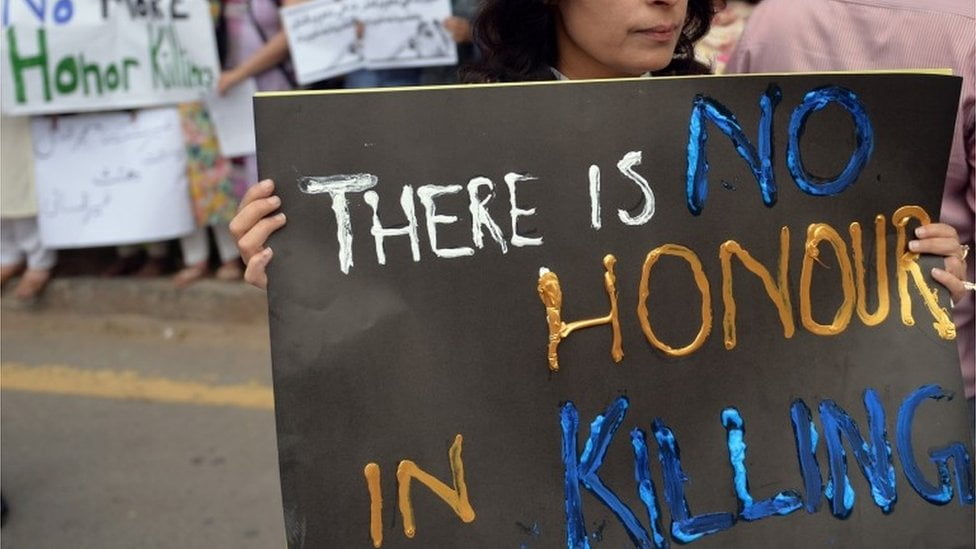Women are not only bearers of children and good fortune in an Indian family, they are the litmus test of familial honour, and by extension social dignity. Ghar ki izzat is a cause the soldiers of patriarchy continue to safeguard with murderous diligence – honour killing being the culminating act of this social demon. In 2022, the Dalit Human Rights Defenders Network (DHRDNet) released a crucial report, enumerating sociological and cultural reasons as well as the legal frameworks and judgement precedence that exist to support the victims of honour killing. Two years later we continue to struggle with the issue of honour killings while battling the structural impunity granted to defenders of religious izzat from love jihad. What legislative structures and precedence have been identified in the report? Does the State care?
Women, the agents of a patriarchal society, have no agency in choosing their romantic partners. Marriage is a social contract that maintains power structures.
Women, the agents of a patriarchal society, have no agency in choosing their romantic partners. Marriage is a social contract that maintains power structures. Honour killings have been largely committed by the woman’s family when she chooses a partner below her social status – religion, caste, economy or a mix of all. In the Hindu Marriage Act or any other law, there is no clause against inter-caste marriage while the Special Marriage Act grants necessary provisions for inter-religion marriages. In a 2011 report, it was noted that the rate of inter-caste marriage in India was merely 5.82%.
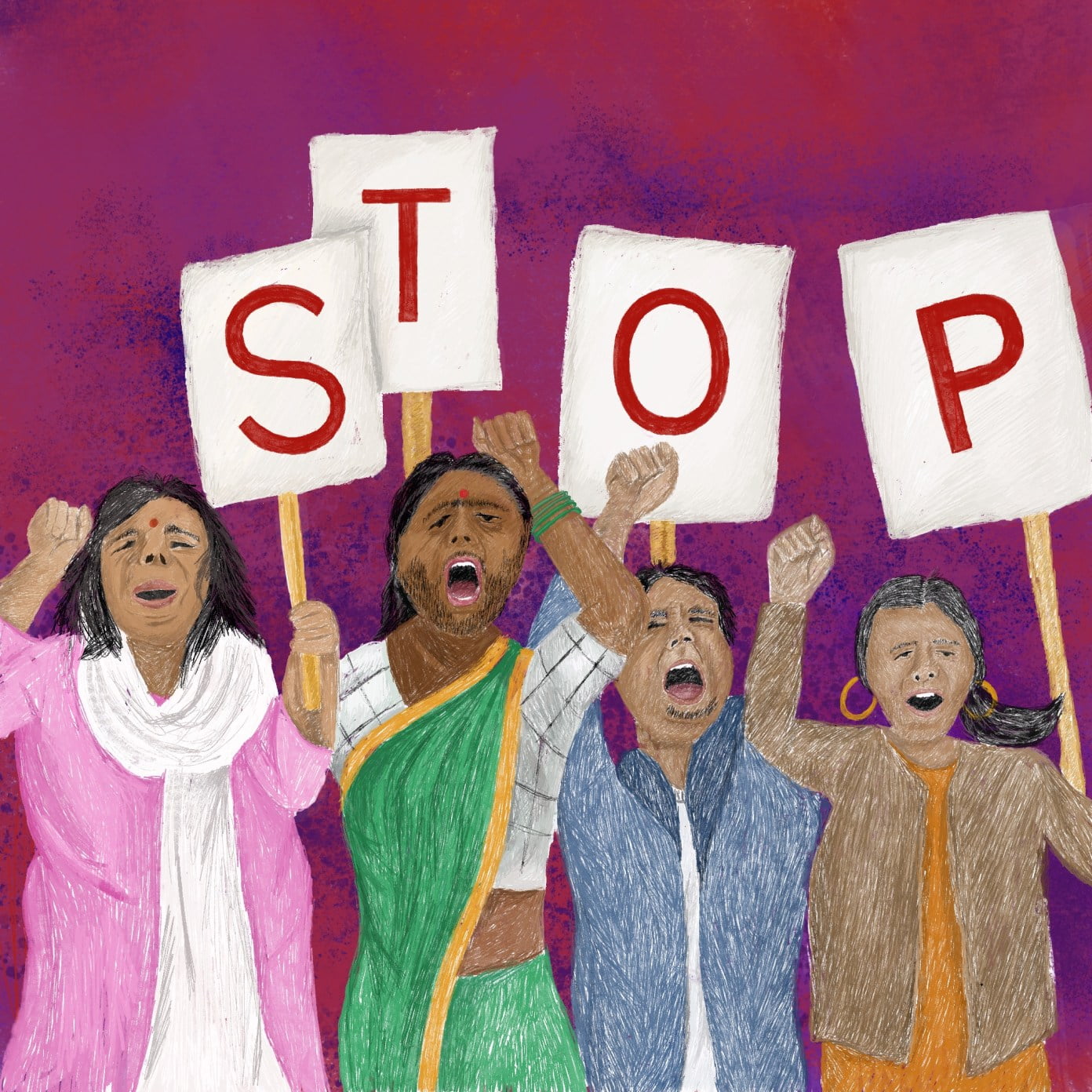
More than a decade later there has been no reported upsurge in this data while the instances of honour killings continue maturing in all its horrors. There is little to no comprehensive report on violence against queer individuals in the name of honour. Also, honour-violence is not solely borne by women but men are equally vulnerable. As women are by default without agency or autonomy in this structure, the responsibility for the transgression lies with the man. In the last month alone there have been three reported cases suspected to be honour killings.
Safe shelters, protection, counselling, legal aid, health care services and rehabilitation
The 2022 report by DHRDNet, titled Crimes in the Name of Honour: A National Shame, is a comprehensive report on honour killings, their context and incidence in the country – with reports from Haryana, Gujarat, Bihar, Rajasthan, Uttar Pradesh, Maharashtra, Madhya Pradesh and Tamil Nadu. A significant section of the report notes the international standards and available legal frameworks in India. The Universal Declaration of Human Rights (UDHR) and other international conventions including the Convention on Elimination of All Forms of Discrimination Against Women (CEDAW) have recognised violence on the premise of honour – to be deemed a criminal offence, punishable by law.
The United Nations General Assembly (UNGA) urged all States to fulfil the eleven recommendations to curtail honour violence – advocating for appropriate safe shelters, protection, counselling, legal aid, health care services, and rehabilitation and reintegration of survivors into society. Convention on the Elimination of All Forms of Discrimination against Women (CEDAW) adopted by UNGA also specifies that States must employ legislation to ‘remove the defence of honour in regard to the assault or murder of a female family member’. Similar emphasis has been made by the Council of Europe Parliamentary Assembly’s Resolution 1327 which additionally creates protective immigration provisions for women vulnerable or at risk of honour-based crimes.
The international standards regarding violence against women on the grounds of honour focus on combating and eliminating the possibility of incidence – through support and shelter. In India, existing frameworks address violence only after it occurs, often post-fatality.
The international standards regarding violence against women on the grounds of honour focus on combating and eliminating the possibility of incidence – through support and shelter. In India, existing frameworks address violence only after it occurs, often post-fatality. The Prevention of Crimes in the Name of ‘Honour’ & Tradition Bill, 2010 was developed but never tabled. In 2012, the Law Commission of India suggested curbing caste councils and panchayats that interfere with marital choices, but their report oversimplified the issue, proposing to prohibit council assemblies as a solution.
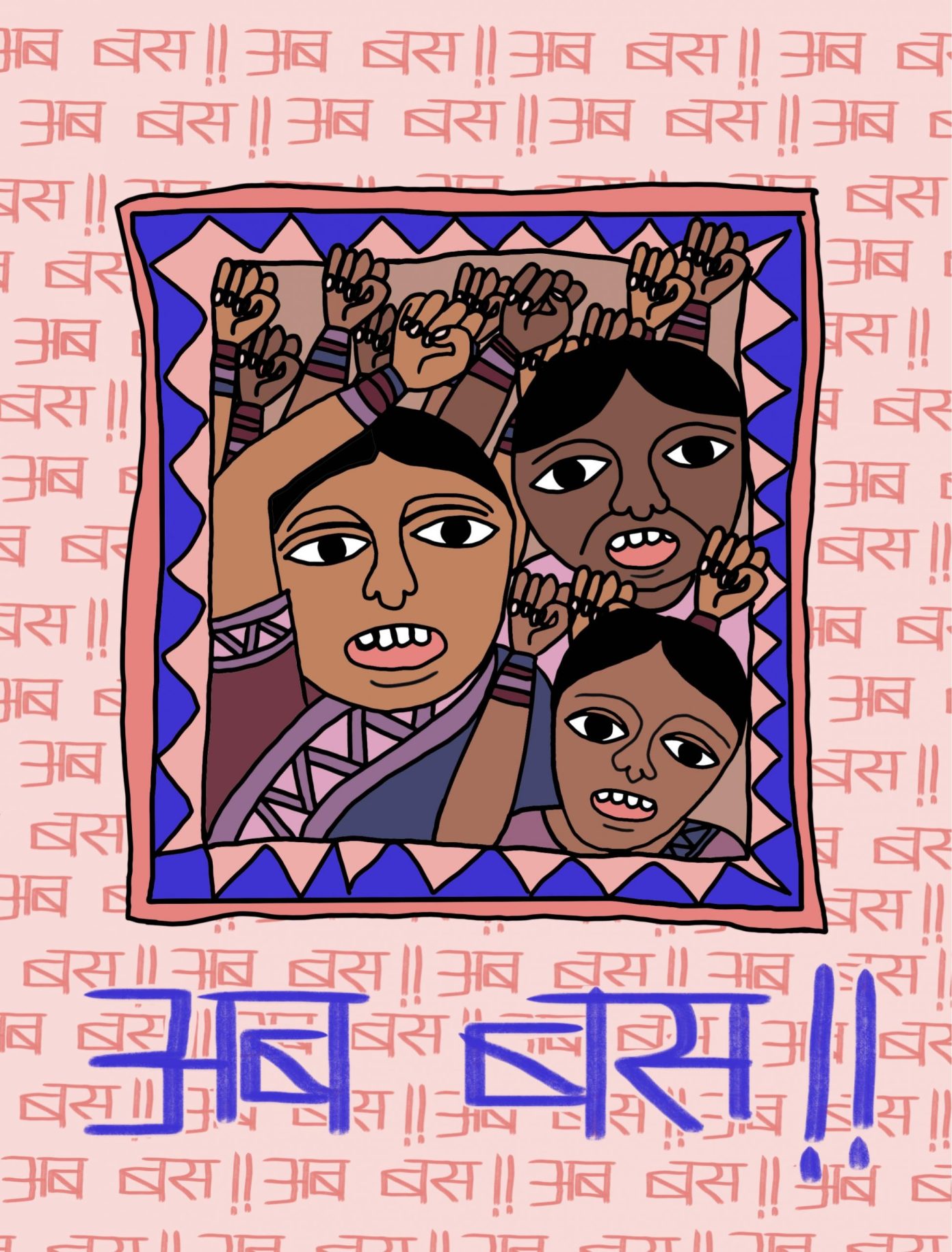
Vigilante caste councils, known as Khap Panchayats or Salishi Sabha, hold kangaroo courts discussing family honour. These councils exacerbate patriarchy and Brahminism, with many incidents of violence going unreported as ‘private family matters.’ Families often murder children and their spouses in the name of honour without council support. In that regard should the unit of family – an assemblage of its own accord, be prohibited? The report also misattributes the rise in honour crimes to women’s ‘changing cultural and economic status,’ adding to cultural misogyny.
NCW draft bill, Anti-conversion law and the right to choice
The National Commission for Women (NCW) prepared a draft bill defining honour crimes as a range of violent acts and identifying the family, relatives, friends, or panchayats as agents of violence. However, the DHRDNet report does not mention its fate at the table. The Rajasthan bill titled ‘Prohibition of Interference with the Freedom of Matrimonial Alliances in the Name of Honour and Tradition Bill, 2019’ focuses on matrimony and upholds regressive traditions without addressing the right to choice. The anti-conversion law, used almost synonymously as love jihad law, continues to deny the same autonomy. The current structure lacks provisions for aid or protection before and after incidents.
Despite parliament discussions, the lack of a specialised legal framework leads to underreported and misclassified cases. The National Crimes Record Bureau (NCRB) reported only 25 honour killings in 2020, with just one case each in 2018 and 2017. But an NGO named Evidence revealed 195 honour killings in Tamil Nadu in the past five years, highlighting the absence of a comprehensive database. There is an absence of a database owing to the lack of classifiers thus the true gravity of this epidemic is unknown to us.
Court judgements, individual liberty and the elusive legal framework around honour killings
When there is a lack of concrete legal framework specialised for such crimes, judgements play a crucial role in setting precedence in court. There have been multiple instances of the court drawing or refraining from drawing the necessary boundaries of honour-related crimes (especially leading to death). One of the earliest cases was Masalti vs State of UP (1964) wherein the Supreme Court emphasised the need to consider partisan witness testimony as in such cases family members, neighbours and village members are often primary witnesses.
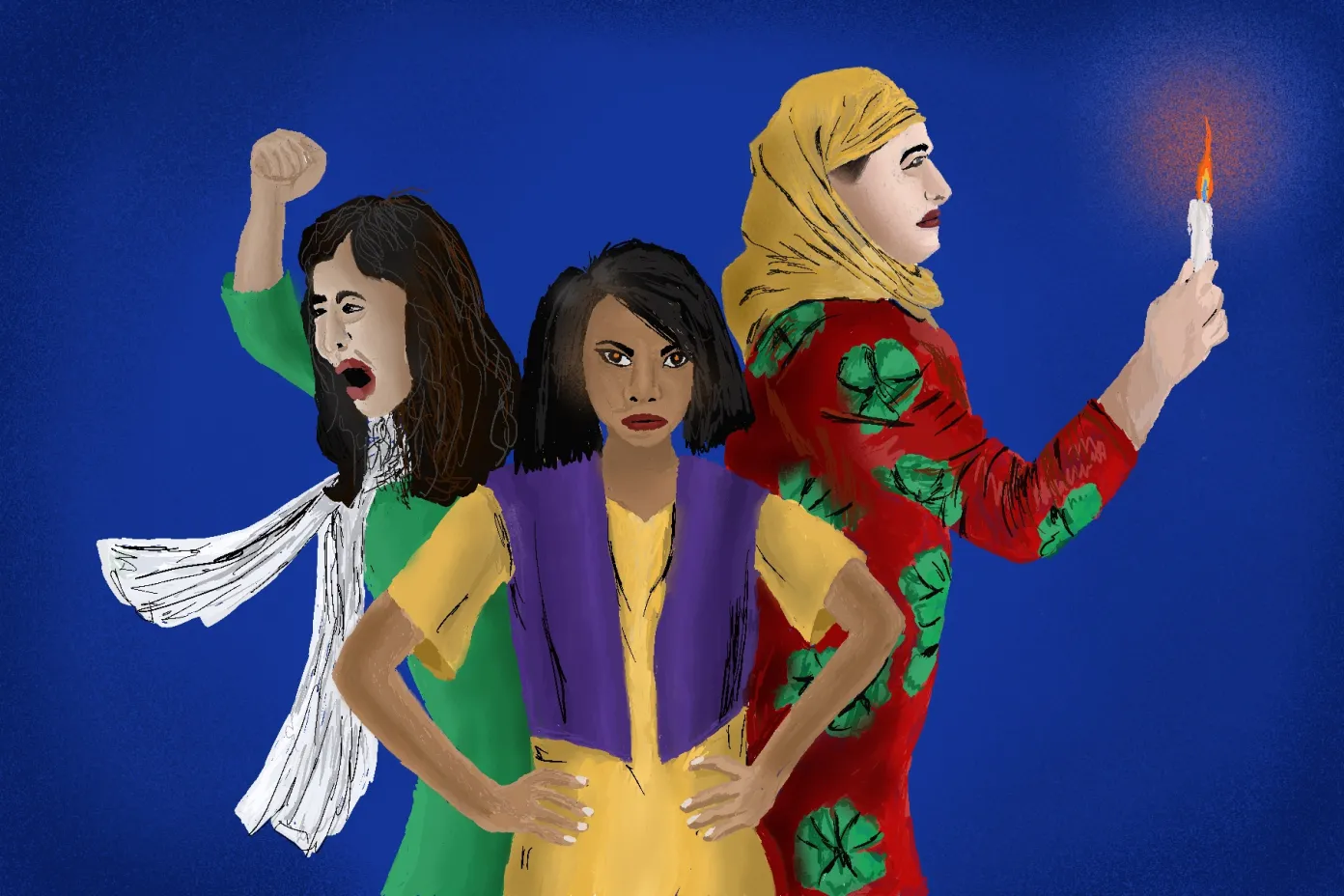
This was reiterated and underlined in the 1975 case Badri vs State of UP as well as the 1985 case State of UP vs Ballabh Das as an independent witness is difficult to find in such intimate relational violence, acknowledging the inevitability of partisan or interested witnesses. It was not until 2010 that a direct address to upholding women’s sexual autonomy and right to choice was made. In S Khushboo vs Kanniammal & Another, the Supreme Court emphasised that no criminal law should interfere with personal autonomy, which brings to question the validity of an anti-conversion law if there is consent. But choice has been subjective to the architecture of its context and the right to choice seems to be bent and moulded at the pleasure of the dominant forces of society.
In 2011, during the proceedings of the Bhagwan Dass vs State (NCT) Of Delhi case, the Supreme Court condemned honour killings and categorised them as ‘rarest of rare cases’, emphasising the need to eradicate feudal practices. The same year during the running of the Arumugam Servai vs. State of Tamil Nadu case the court condemned the authority of extra-judicial bodies like khap panchayats. While the legal framework has not created any concerted efforts to make reporting such cases or police action more stringent against the defenders of honour – in the 2013 case hearing of Deepika and Another vs State Of U.P. And 3 Others, the court ‘reprimanded’ the police for taking coercive action against young couples.
Unbiased police action can make a lot of difference in resisting such punitive and collective action taken by the likes of khap panchayats. Since 2018, cases related to honour killing (like the iconic Shakti Vahini Vs. Union of India case) have seen the Supreme Court condemn honour killing, emphasise individual liberty and dignity, and assert interference in personal choices is unconstitutional. Yet, there has been no move to make legal frameworks solid to create the necessary conditions for constitutional rights and individual freedom to function.
Honour is weaponised in India’s Brahminical-patriarchal structure, presenting a moral and philosophical issue.
Honour is weaponised in India’s Brahminical-patriarchal structure, presenting a moral and philosophical issue. The DHRDNet report omits queer deaths and violence, despite rape being a common form of violence against the queer community, which struggles to exist within familial and cultural honour norms. In a recent statement, MK Stalin stated that ‘handling the cases in a proper manner and bringing the accused before the law is a better solution than bringing a new legislation to curb (honour killings)’ as a couple sought shelter from imminent danger from their families in the name of honour.
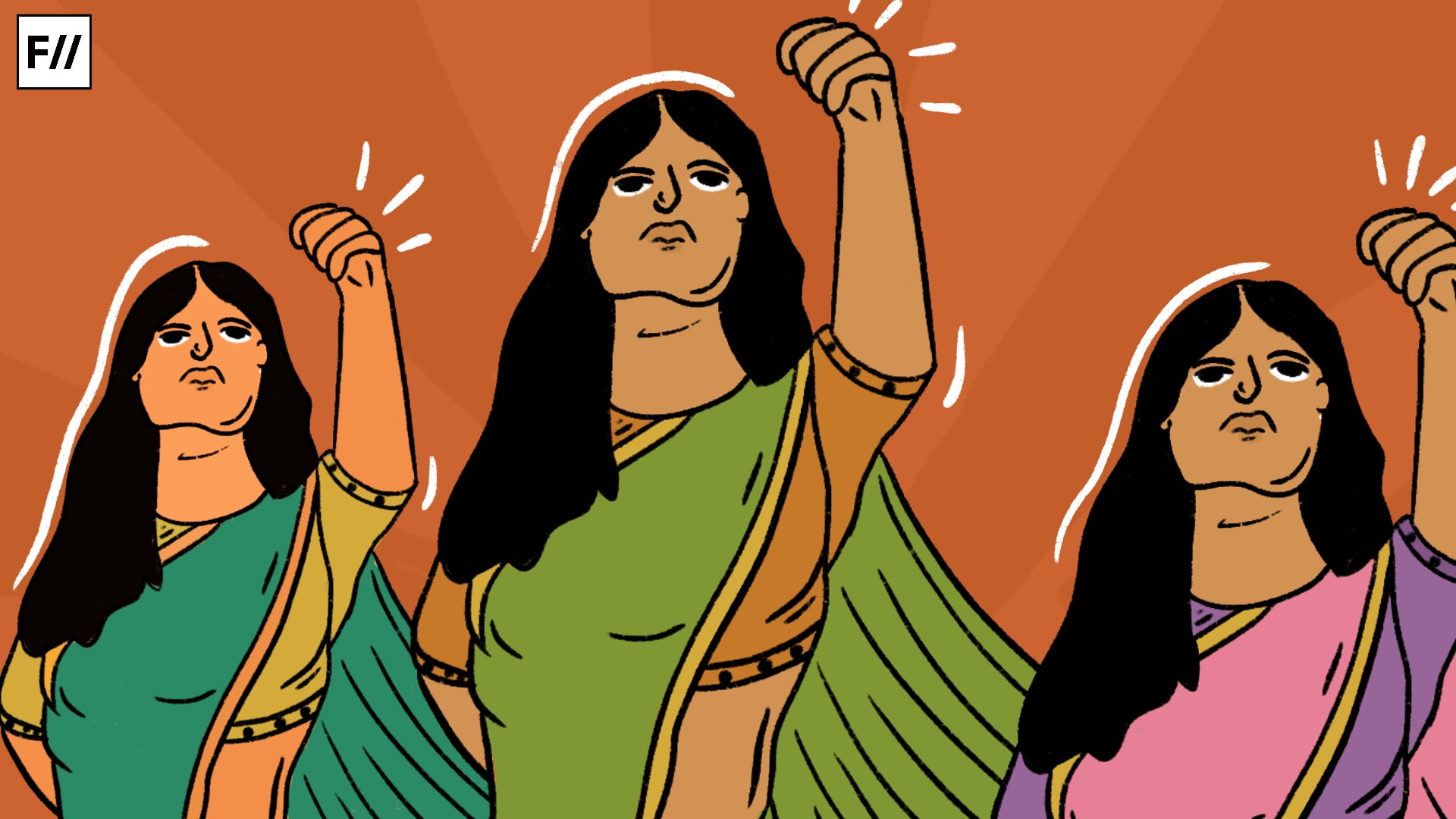
The State continues to shy away from establishing a robust system, which is within its power, to combat this epidemic because the systemic Brahminical power that feeds these crimes also feeds the State. A patriarchal State that is a tool of sectarian, casteist power has no interest in protecting the vulnerable. While the State and judiciary find their moral compass, it is upon civil society to aggressively campaign against this national dishonour.
About the author(s)
She/they is an editor and illustrator from the suburbs of Bengal. A student of literature and cinema, Sohini primarily looks at the world through the political lens of gender. They uprooted herself from their hometown to work for a livelihood, but has always returned to her roots for their most honest and intimate expressions. She finds it difficult to locate themself in the heteronormative matrix and self-admittedly continues to hang in limbo
